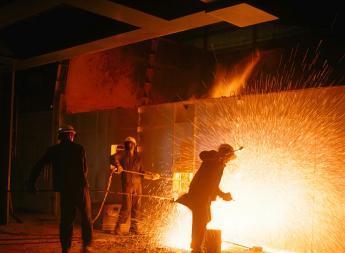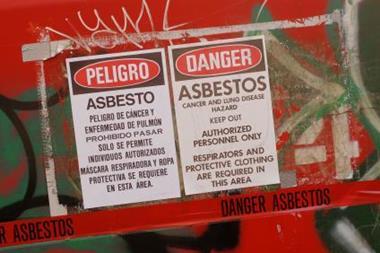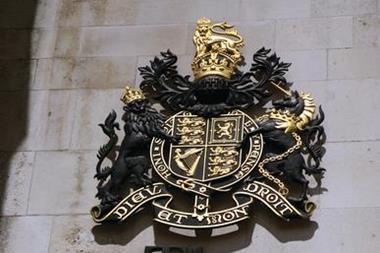TUC general secretary calls for greater enforcement powers and activity, including a statutory duty on directors
Speaking at a conference on safety enforcement and directors' duties, TUC general secretary Brendan Barber has called for tougher enforcement to tackle a health and safety (H&S) 'crime wave', which causes at least 20,000 work-related deaths and 2.2m injuries every year.
Addressing the Centre for Corporate Accountability (CCA) Conference in London, Barber said: 'Recent statistics from the Health and Safety Commission revealed that 241 workers died at work - the highest number for five years.'
'But however appalling that figure is, it only tells us part of the story.’
'We have to remember the 5,000 people killed last year because of asbestos exposure, the thousand killed in work-related road accidents, the many thousands killed by workplace cancers every year, as well as those who suffer heart attacks as a result of overwork or stress.'
'Nobody knows exactly how many people die prematurely every year as a result of work, but is certainly well over 20,000 a year - and every single one of these deaths was avoidable.’
'The HSE estimates that over 80% of injuries are a direct result of management failures. This means that the vast majority of deaths are simply down to management breaking health and safety laws.’
'The same is true of the 2.2m people who are suffering from an illness they believed was caused or made worse by their work.’
'To me this is a crime wave on a massive scale. A crime wave that screams out for action.’
'Evidence shows the most effective way to change behaviour is strong enforcement action, supported by advice and guidance. And there is also evidence of a clear link between enforcement levels and injury rates.’
'So if we know enforcement works, then why are we not doing more to enforce the law?’
“A statutory duty on directors is high on the TUC's agenda.
TUC general secretary Brendan Barber
'Part of the answer lies in the Government's attitude towards enforcement. We get positive messages from Ministers like Lord McKenzie and from the Chief Executive of the Health and Safety Executive. We have also had recent statements from a number of Ministers about the importance of enforcement action to protect vulnerable workers.’
'But at the same time, the message coming from 10 Downing Street, the Cabinet Office and the newly created Department for Business, Enterprise and Regulatory Reform is that the role of Government is to remove burdens on business.’
'If you look at the latter's website, there would be no hint that part of its role might be to promote regulation as being a good thing.’
'And that is part of the problem. If one half of the Government sees regulation as a dirty word, then it makes life very difficult for the other half who recognise the importance of protecting the vulnerable.’
'Unfortunately, the Government seems to have been taken in by employer lobbying about so-called 'red tape'. They set up the Hampton Review of Regulation, but surprisingly its remit did not include looking at the advantages of regulation to the victims of corporate corner-cutting.’
Brendan Barber called for greater enforcement powers and activity, including a statutory duty on directors. He said: ' A statutory duty on directors is high on the TUC's agenda.
'We also need higher fines, and we want the courts to enforce them. We know that the Government supports this, but they have done since 2000 and, despite four attempts to change the law, parliamentary time has not been made available.’
'But most of all, we want more inspections and enforcement activity. After being in freefall for the past decade, the level of enforcement activity is now increasing, with a rise in the number of prosecutions.’
'However, to maintain that progress, we need more resources for the HSC. The DWP is proposing a 5% real terms cut in the HSC budget for each of the next three years. T his would have a disastrous effect on enforcement. We have already seen a big jump in reported levels of occupational ill health this year. If the Government goes ahead with these proposed cuts, then we will see more injuries, more illness, and more being spent on medical treatment, sick pay, benefits and compensation.'




















No comments yet